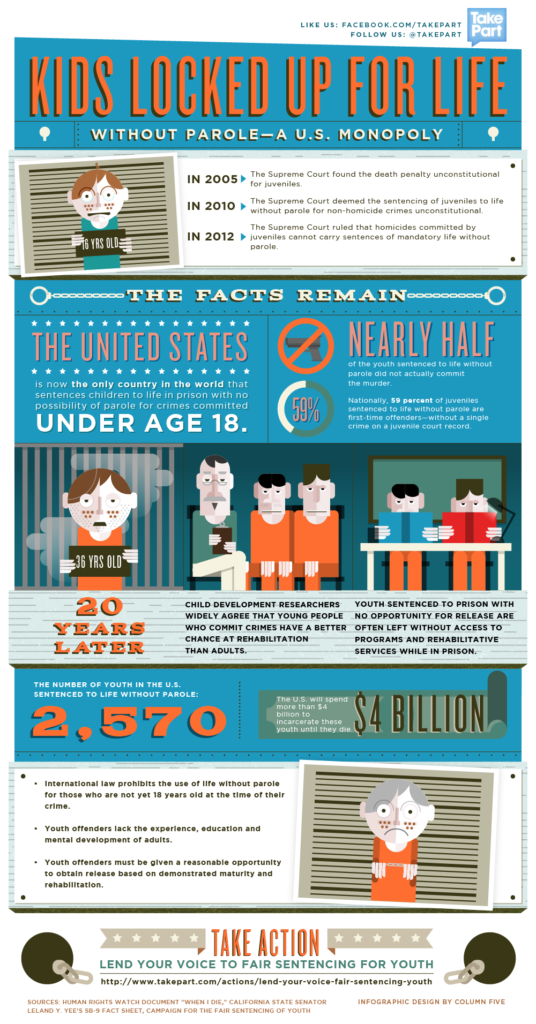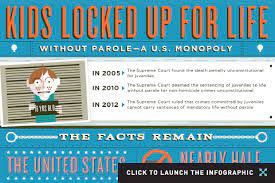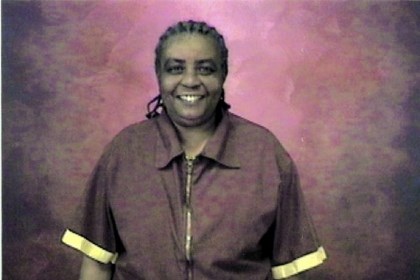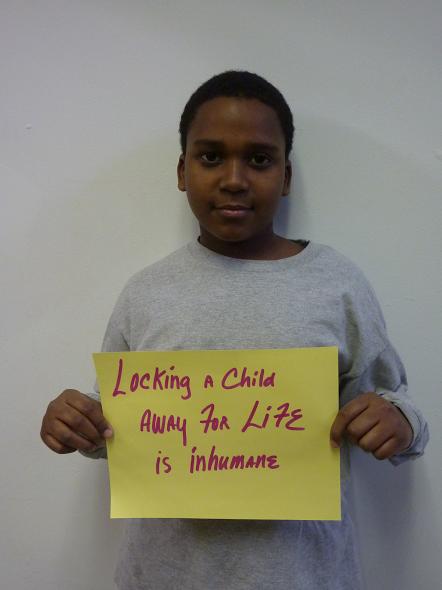
The United States stands alone in the world in sentencing children to life without the possibility of parole. Life without the possibility of parole is torture, but for children it’s a special hell. For girls, it’s worse. That’s the takeaway of this week’s report by Juan E. Méndez, the United Nations Special Rapporteur on torture and other cruel, inhuman or degrading treatment or punishment.
In his report, Juan Méndez “explores the international legal framework and standards protecting children deprived of their liberty from being subjected to torture or other ill-treatment and from experiencing developmentally harmful and torturous conditions of confinement. He also examines specific statutes and standards applying to prevent torture and ill-treatment of children deprived of liberty, and shortcomings in the practical implementation of legal standards.”
The report references girls’ need for access to gynecologists and education on women’s health; and their need for autonomous space, separated from boys as well as adults. The recommendations include respecting the heightened vulnerability of girls, as well as minority children, children living with disabilities, and migrant children. For migrant minority girls living with disabilities, the vulnerabilities are off the chart. In his last recommendation concerning treatment of children in detention, Méndez singles out girls, lesbian, gay, bisexual, transgender and intersex children, and children with disabilities.
The report notes, “Children in detention should be provided throughout the day with a full programme of education, sport, vocational training, recreation and other purposeful out-of-cell activities. This includes physical exercise for at least two hours every day in the open air, and preferably for a considerably longer time. Girls should under no circumstances receive less care, protection, assistance and training, including equal access to sport and recreation.”
And here is the heart, and heartlessness, of the matter: “Girls deprived of their liberty are at a heightened risk of sexual violence, sexual exploitation and underage pregnancies while in detention. The risk of sexual abuse is greater when male guards supervise girls in detention. Girls deprived of their liberty have different needs not only to those of adults but also of boys. Girls in detention are often not only children but also carers, either as mothers or as siblings, and have specific health, hygiene and sanitary needs. Across the globe, girls are rarely kept separately from women in pretrial and post-conviction settings. Similarly, the Special Rapporteur notes that lesbian, gay, bisexual, transgender and intersex children are at a heightened risk.”
Imagine that that daily “heightened risk” and intensified vulnerability form the visible, pre-ordained and immutable arc of your life. That is the policy practiced by the United States, alone in the world, and it’s designed for Black children. When it comes to girls, and particularly to Black girls, it’s designed for those whose vulnerability is already a matter of State practice. 80 percent of girls and nearly half of all children sentenced to life in prison without the possibility of parole have been physically abused. 77 percent of girls and 20 percent of all youth lifers said they have been sexually abused. This is the algebra of torture, cruelty, inhumanity, and degradation. Children sentenced to life without possibility of parole are the child soldiers of the United States. What exactly is the war being waged?
(Photo Credit: TakePart.com)


